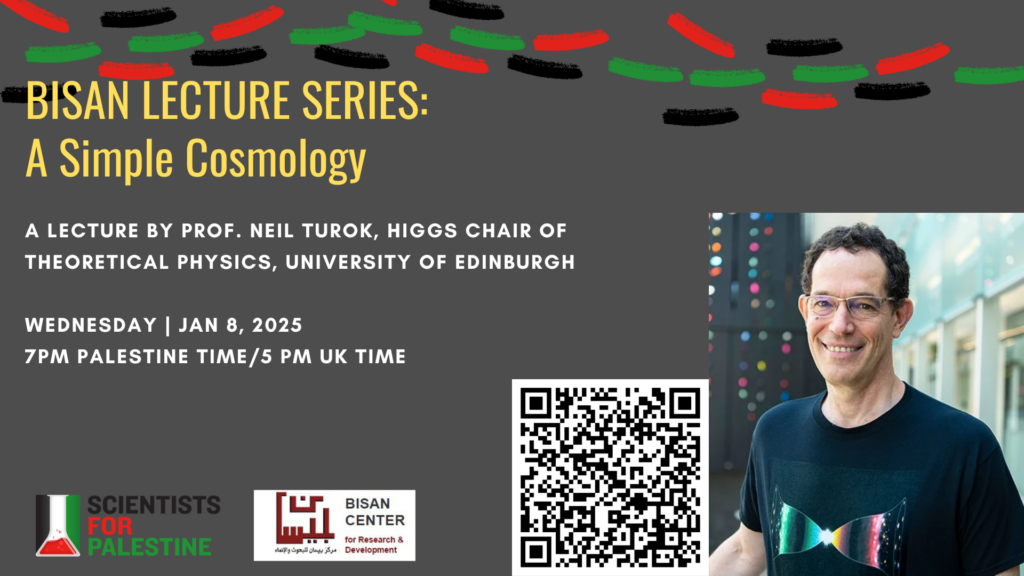
Wednesday, January 8, 2025, 7 pm Palestine time
Prof. Neil Turok, Higgs Chair of Theoretical Physics, University of Edinburgh
Title: A Simple Cosmology
Abstract: Observational cosmology has progressed in leaps and bounds over the past few decades, revealing astonishing simplicity in the large-scale universe. Likewise, experiments probing the tiniest accessible scales have detected no deviations from known physics. These findings were not what most theorists expected. According to the dominant theoretical paradigm, the universe was expected to be extremely complex on tiny scales and wildly chaotic and unpredictable on large scales. What should we make of the discrepancy? Perhaps, when observations and experiments reach smaller or larger scales, more complexity will be revealed. A more exciting possibility is that the universe really is very simple and predictable on small and large scales. Maybe the observations are already revealing nature’s most basic laws and, if only we interpret them correctly, they could guide physics’ next major advance. I’ll present a radical new hypothesis, that the big bang “singularity” is a kind of mirror. This simple idea connects particle physics to cosmology and makes several predictions which might be confirmed in the near future.
Bio: Neil Turok, theoretical physicist, holds the Carlo Fidani Roger Penrose Distinguished Visiting Research Chair in Theoretical Physics at the University of Edinburgh. He was the Director of the Perimeter Institute (2008–2019). Turok’s research includes key contributions to cosmology, including confirming predictions of standard cosmology regarding the cosmic background radiation (CBR) and dark energy. He co-discovered instanton solutions with Stephen Hawking. He has received several prestigious awards, including the James Clerk Maxwell Medal and the Lane Anderson Award for his book The Universe Within. Born in South Africa, Turok founded the African Institute for Mathematical Sciences (AIMS) in 2003, which has grown into a renowned network of six postgraduate training centers across Africa. His efforts in science and education have earned global recognition, including the TED Prize and the John Torrence Tate Medal.
